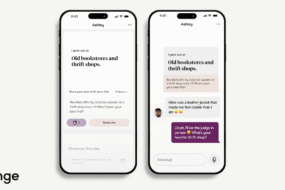
Facebook’s AI-Powered Photo Editing Feature Rolls Out to U.S. and Canada
In a move that could redefine how we interact with our photos on social media, Facebook has officially rolled out a new AI-powered feature to all users in the U.S. and Canada. This innovative tool suggests edits to unshared photos in your camera roll, encouraging you to post them to your Facebook Feed and Stories with AI-driven enhancements. Let’s explore how this feature works, its implications, and what it means for users.
How the Feature Works
First introduced as a test last summer, the feature operates with user consent. When enabled, it prompts a permission dialog box requesting access to your camera roll for “cloud processing.” This allows Meta’s AI to analyze your photos creatively, offering ideas like collages, recaps, AI restyling, and birthday themes. The AI doesn’t stop there—it can generate new content based on your images, making it a versatile tool for enhancing your social media presence.
The feature is optional, and users can choose to opt in to receive these suggestions. Once enabled, Facebook uploads images to its cloud for processing, enabling the AI to create tailored edits and ideas. However, Meta assures users that their media will not be used for ad targeting or to improve AI systems unless the user edits or shares the photos, ensuring a level of control over data usage.
Privacy Implications
While the feature is designed to enhance user experience, privacy considerations are natural. Meta emphasizes that the AI does not train on all uploaded photos unless actively used by the user. However, by agreeing to Meta’s AI Terms of Service, users permit the analysis of their media and facial features, allowing the AI to summarize content, modify images, and generate new content. This access also lets Meta use photo dates and recognize people or objects, providing insights into personal relationships and lifestyles—data that could offer a competitive edge in the AI race.
Despite these privacy aspects, users retain control over their data. The feature can be disabled at any time through the app’s settings under the “Camera roll sharing suggestions” section. Here, users can toggle options for sharing suggestions and cloud processing, empowering them to manage their privacy preferences effectively.
The Future of AI in Social Media
This feature underscores Meta’s strategic focus on AI to enhance its platform. By leveraging unshared photos, Meta gains access to a wealth of data, offering significant potential for developing new AI features and improving existing ones. Previous efforts include training image recognition AI on public data from Facebook and Instagram, with plans to expand to images analyzed by Ray-Ban Meta users.
As AI continues to evolve, features like these will likely become more common, blending seamlessly into our social media experiences. The key for platforms will be to balance innovation with user trust, ensuring transparency and control over data usage.
Conclusion
Facebook’s AI-powered photo editing feature represents a significant step forward in integrating AI into social media. While it offers creative possibilities and convenience, it also raises important questions about data privacy and usage. By understanding both the benefits and the trade-offs, users can make informed decisions about how they engage with this feature.
In the end, this feature is more than just a tool for enhancing photos—it’s a glimpse into a future where AI plays a pivotal role in shaping our online experiences. As technology advances, the conversation around data and privacy will continue to evolve, making it crucial for users to stay informed and proactive about their digital presence.







No Comments